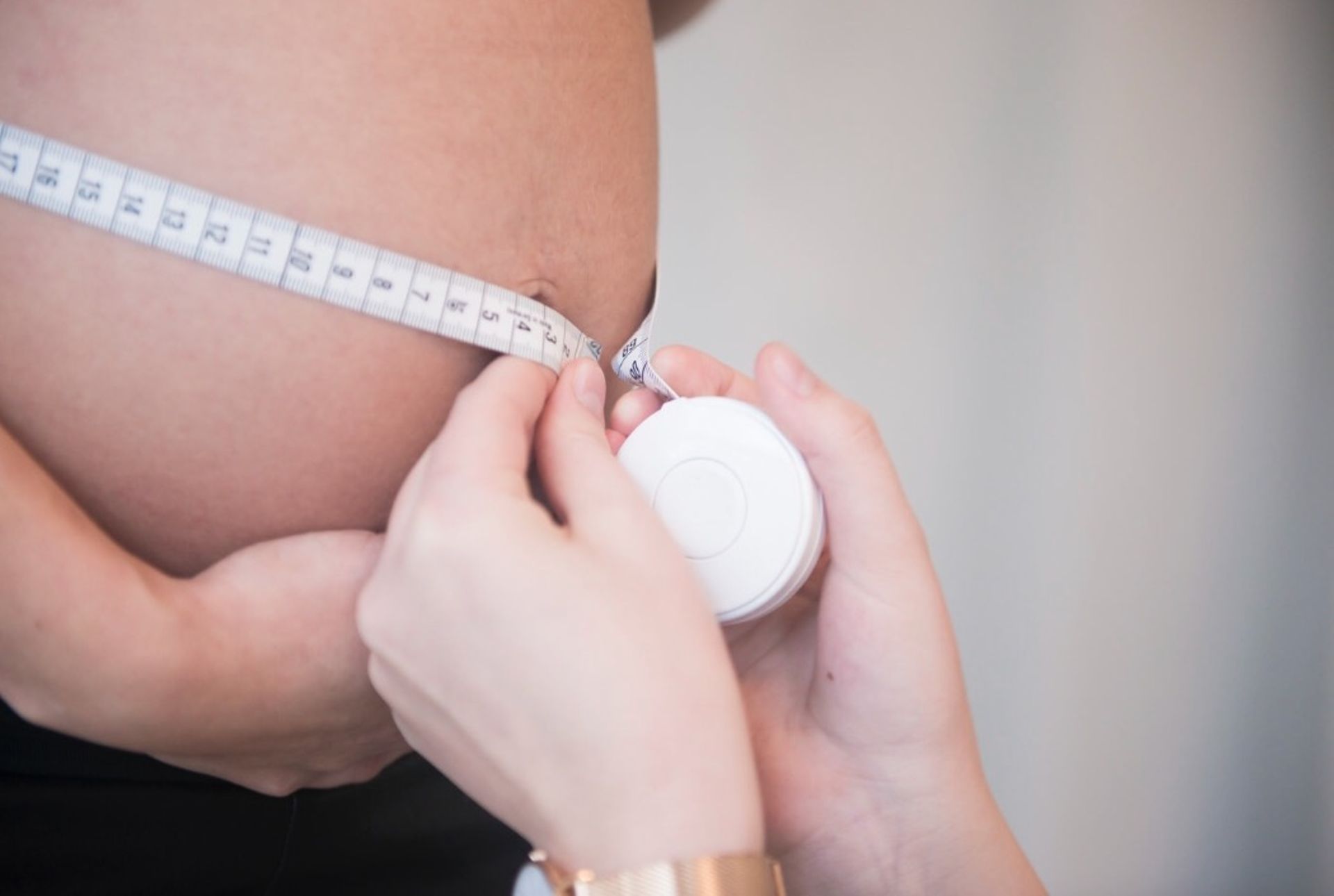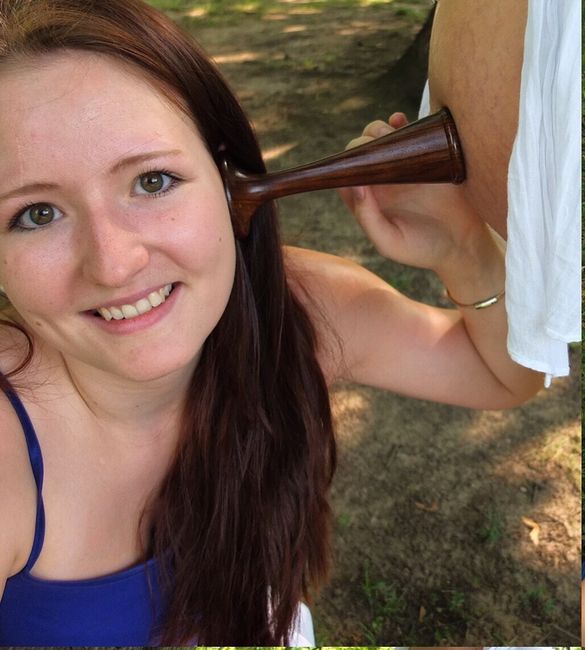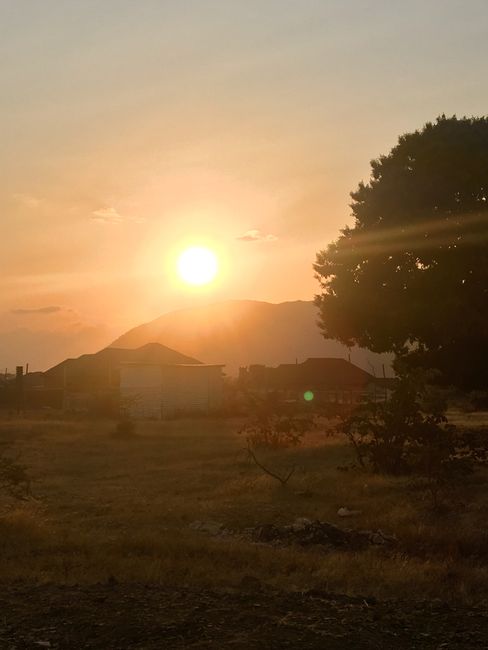Experiences and Lessons
Publicerad: 11.09.2018
Prenumerera på nyhetsbrev
Tuesday, September 11, 2018
Getting up, brushing teeth and washing. The routine for many in the morning. But it becomes difficult when suddenly no water comes out of any faucet. Not in the bathroom, not in the kitchen, not a drop. Great start to the day.
I am used to living without electricity for hours, sitting at the dining table with just two small lamps, not having hot water, not browsing the internet endlessly on Wi-Fi for weeks. But no water at all, that was the first time.
So, I did everything with bottled water and off to the clinic.
8 a.m. in the morning, a woman was in labor, the remaining three 'compartments' of the delivery room were vacant and (once again) it was a mess! I don't understand how someone can work so untidily and leave it like that for hours. At least needles and open ampoules can be disposed of. I lifted a piece of paper and found three open needles underneath - unclear! I was really a little angry and started cleaning first.
My level of disgust is constantly being exceeded here.
I heard that the woman was having strong and painful contractions. I checked the heartbeats, normal frequency, but noticed a cesarean scar on her abdomen. In Tanzania, the rule is: Once a cesarean, always a cesarean (C-section). So, I tried to find papers explaining why we would make an exception for her.
In Germany, women are fortunately allowed to deliver spontaneously after a C-section, but it is still considered a 'risk' and the birth should be observed more closely.
Here, no one was doing that, I thought to myself..
Found the papers: Entry at 6:30 a.m., admission of the woman with strong contractions, cervix already wide open
Plan: C-section
Good, I thought.. that was two hours ago, and the woman is still here.
I approached the nurse, she explained to me that they were already preparing everything. I had already witnessed how long this takes. I knew by now that checking hemoglobin levels was mandatory, so I asked if it had already been checked. The nurse replied curtly: 'Yes, of course, she has been here for a while.' Well, I trusted that statement - unfortunately!
One hour later, the woman had contractions without a pause. I wished that she would just deliver spontaneously, but it didn't seem likely. The baby was in the wrong position in the pelvis, the belly was huge, and the woman's pain was increasing.
In Germany, there is the possibility of using labor-inhibiting medication - not here. I tried to breathe with the woman, change positions, and now I asked emphatically about the surgical team.
Suddenly the doctor came in and said: I won't operate without a hemoglobin level!
I could have burst in that moment. The nurse also sensed this, and I ordered her to take the blood herself, as I didn't want to leave this woman alone for a second.
I observed her and a feeling of unease came over me. A condition after a C-section becomes an acute emergency if the scar tissue can no longer withstand the force of the contractions: it's called uterine rupture.
I noticed some signs indicating a looming rupture and I asked the doctor to act now, please!
At that moment, the nurse came back and showed me the result. Way too low! Help, I had not encountered this before here!
What happens now?
The woman needs help quickly, who will take care of her?
Where will she be helped?
Suddenly, even the usually relaxed Tanzanians noticed that something was wrong and we ran outside. The woman was brought into an 'ambulance' = a jeep with a metal bed, with me and the nurse sitting next to her. Seat belts would be a waste. Just like cushions for the woman. So, I held one hand protectively over the woman's belly so that she wouldn't hit it against the metal. With the other hand, I held onto myself and the woman as we raced with sirens and flashing lights through the broken roads, sandy paths, and chaotic traffic, not really bringing a calm driving style.
I haven't had so much fear, adrenaline, and concern in me for a long time.
It was a terrible moment.
We drove for 8 minutes, and it took a few more minutes on site, but I noticed that they were taking action and the doctors were already wearing surgical clothing. I had hope. I had to leave and trust that the woman and the baby could be helped in time.
Back in the jeep, we had to go through another ride.
A woman had driven to a kind of medical center with her 1-month-old child because it had stopped breathing. But they couldn't save it, and it died on the spot.
Our task was to bring her and the child to the hospital together.
In moments like these, one feels despair for a moment.
Everything around me suddenly turned gray.
Would the child have made it if it had been treated directly in a clinic?
It was so horrible to sit next to the woman, with her child in my arms. She was trembling, and I reached out my hand to her. Everyone was silent. Unfortunately, I couldn't do more.
Such days make you think for a moment.
The delivery room was quiet afterwards and I took the opportunity to have a conversation with the hospital chief, Dr. Pilila.
He has always been very dedicated so far, and he values exchange of ideas. I discussed with him some points that I had noticed here so far and reported about the practices in Germany.
He was very grateful, and he considers it important to learn from each other. We were able to agree on some problems where we might be able to optimize something, and I am curious to see if and how we will tackle them in the coming days.
After the conversation, I actually gained strength because it was good to have him 'on my side' or to get the feeling that he understands it and also shows insight into the hygiene gaps & Co.
'But every day is precious.
The beautiful days give us joy,
the bad days give us experiences,
the terrible days give us lessons,
and the best days give us memories.'
After today, I am ready again for beautiful days.
Prenumerera på nyhetsbrev
Svar


